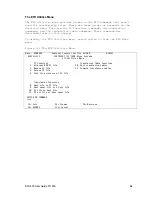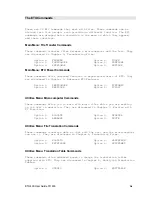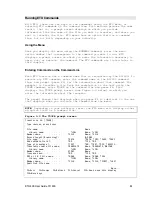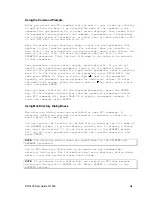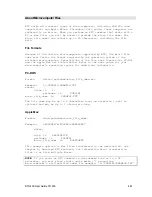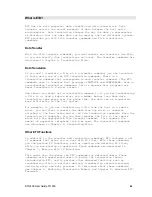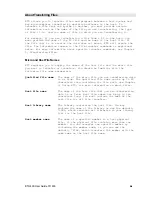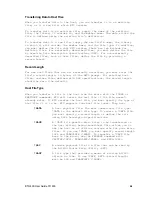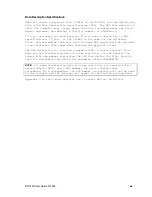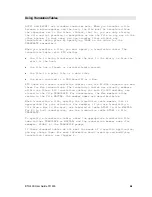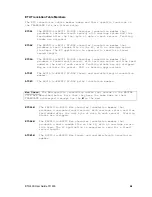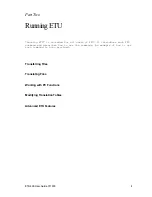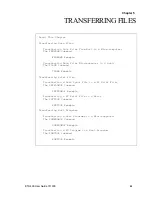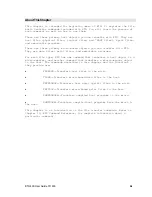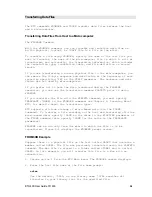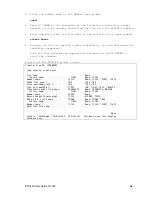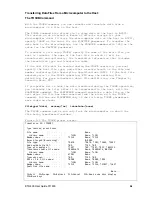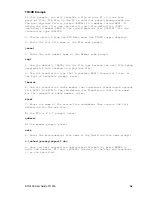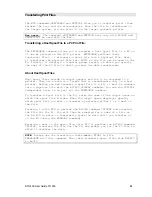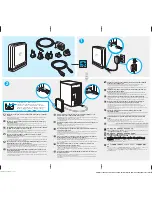
ETU400 User Guide 011603
4-6
Data Description Specifications
When you create a physical file (*DATA) on the AS/400, you can define the
file using Data Description Specifications (DDS). The DDS file definition
tells the computer many things about the file, including where one field
begins and ends, and whether a field is numeric or alphabetic.
It's not necessary for each physical file to have a unique set of DDS
specifications. In fact, if the format is the same for two different
files, you can define them both with the same DDS specifications (be sure
to use different file names when creating the physical files).
The DDS definition is stored as a member within a source physical file.
When you are transferring data to a new host file, you can specify the
source file and member containing the DDS that define the file. Specify
the file containing the DDS in the parameter called FLDDEFFILE.
NOTE:
If, when transferring data to a new host file, you specify both a
record length (RECL) and a DDS member, the record length takes
precedence. As a consequence, the DDS member you specify will not be used
in the transfer and the data may not appear on the host as you expected.
Appendix C in this guide explains how to create DDS on the AS/400.
Summary of Contents for ETU400
Page 1: ...i ETU400 User Guide AS 400FileTransferUtility...
Page 30: ...ETU400 User Guide 011603 2 5 old versions since most users do not modify these tables...
Page 183: ...ETU400 User Guide 011603 10 53...
Page 239: ...ETU400 User Guide 011603 E 1 Appendix E ERRORMESSAGES NATIVEMODE...
Page 264: ...ETU400 User Guide 011603 F 1 Appendix F ASCII EBCDICPRINTABLECHARACTERS...
Page 304: ...ETU400 User Guide 011603 H 1 Appendix H INTERNATIONALTRANSLATIONTABLES...
Page 309: ...ETU400 User Guide 011603 J 1 Appendix J ETUTHROUGHPUTCONSIDERATIONS...



